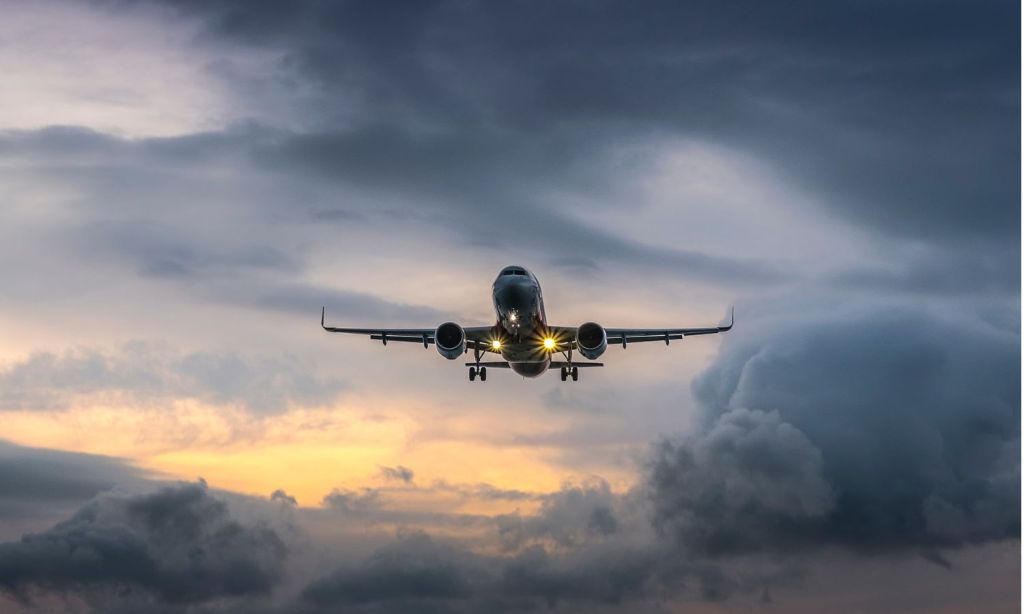Recently, I was on a flight with a lot of turbulence. It was like someone was shaking the plane on its side and up and down. My stomach kept dropping, almost like I was on a rollercoaster. I didn’t feel scared, though. And I owe that all to a viral TikTok clip.
First, if you suffer from a fear of flying — called aerophobia — you’re not alone. A 2019 survey by insurance company, InsureandGo, found that more than one in three Australians suffer from it. Aside from the take-off, landing, and generally consuming stories about plane crashes, one of the main triggers of aerophobia is turbulence.
This is probably why Australian TikToker Anna Paul’s video on how to better understand turbulence went viral last year — as of writing this, it’s clocked up over 7 million views.
But if you didn’t see it back then, given how much it’s worked for me, I thought it worth again sharing. In the video, Paul shares that she learned the tip of how to not fear flying from a pilot. She sticks a rolled-up napkin piece in a cup of jelly where it stays, stuck.
“Pretend this is the air you’re flying in — this jelly right here,” she says. “And this napkin is the airplane. […] There’s pressure from the bottom, pressure from the top, from the sides, pressure coming from everywhere.”
“When there’s turbulence, you feel the plane shaking,” she says, tapping on the top of the jelly and making it wobble. “But this [the napkin piece] is not just going to fall down. […] So, this is what turbulence is.”
@anna..paullFear of flying tip ✈️❤️
Paul also goes on to say that there’s never been a plane crash from turbulence. However, this doesn’t seem strictly true, with US publication NPR writing, “It’s almost unheard of for turbulence to cause a crash, but it can lead to costly repairs for the carriers”, such as in 1996, when a plane was affected by turbulence. The plane was flying from Tokyo and broke apart mid-air, due to severe weather conditions. That said, meteorological condition monitoring has greatly advanced since then.
Turbulence, by the way, is caused by “atmospheric pressure, jet streams, air around mountains, cold or warm weather fronts, or thunderstorms,” according to US group The Federal Aviation Administration.
Paul finishes the video by saying that the next time you feel turbulence, she suggests you just think of yourself as wobbling in a cup of jelly. You’ll then be able to understand how the plane can’t simply drop out of the sky.
As someone who flies regularly for work, I can’t tell you how much the video has given me peace of mind.
Related: Need Some Travel Inspo? Take a Cue From Lonely Planet’s Best in Travel 2023 List
Related: I’ve Scored Free Flights and Travel Insurance — and Now I’m Sharing My Secrets
Read more stories from The Latch and follow us on Facebook.

